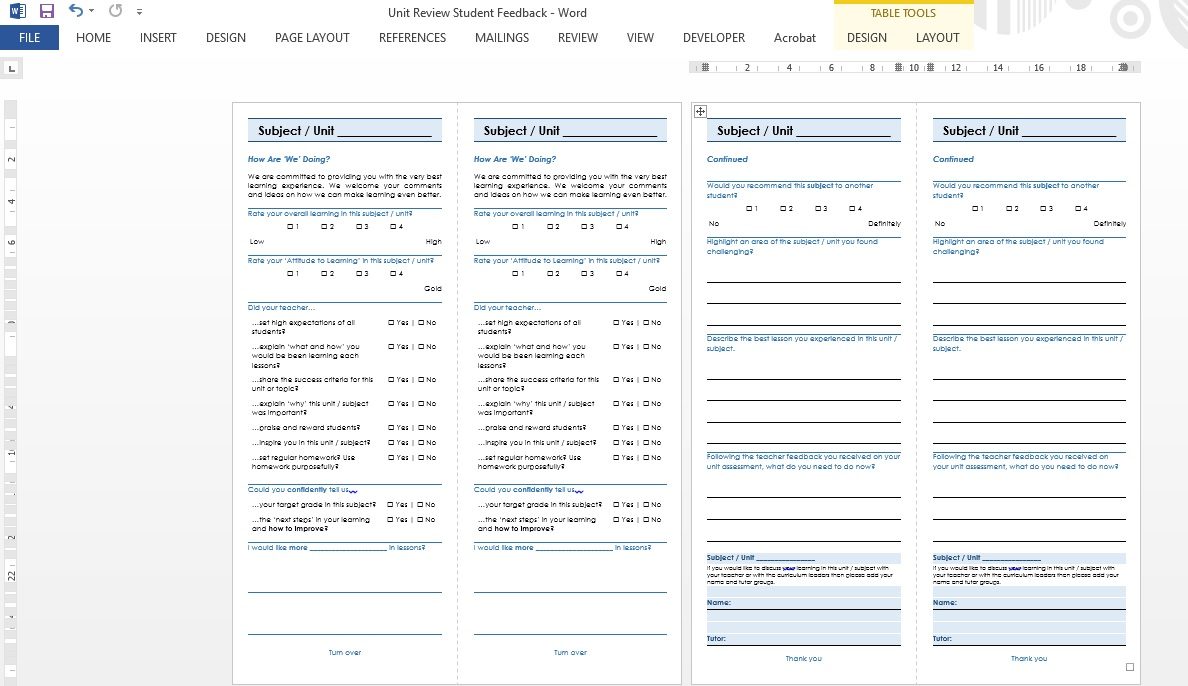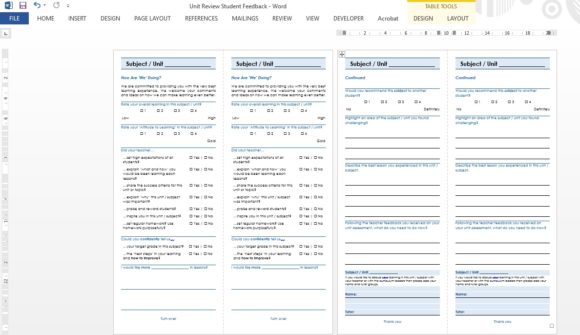The first round of observations are either under way or out of the way. Feedback or coaching has presumably been issued or shared. There are other opportunities too, hiding in plain sight. And possibly, the #dontsmilebeforechristmas brigade, hyped-up and hyper-vigilant, are about to miss it too as the first term draws to a close.
Student feedback is a prickly topic when it comes to staff interviews (pupil panels). However, I am finding it difficult to understand why you wouldn’t seek the input or feedback from your own students. Horses and water and all at. Even where the relationships are fraught, this might be one of the few tasks that might start to rebuild relationships.
Certainly, I have found that exploring class expectations, my teaching, their learning and their attitudes to learning, has only led to more productive climates. It may be partly due to my formative teaching years at a post 16 college that I seek students view, but equally I have received as many a useful suggestions from thoughtful Year 7 or Year 8 students as A Level students.
I tried various feedback approaches; offline and online forms or surveys, simple conversation, forms, and have found hard copy a slim-line A4 feedback slips works well. For some unknown reason, students do not see it as a “form?” I then review and summarise the responses, offering one or two improvements, considerations or changes, I plan to make next term. I then start the new term reiterating that commitment.
By chance, last period on Friday afternoon, I stumbled upon a conversation between a teacher and their Year 11 wavering class. Together – we share our ambitions for the class and opened up the conversation for their input. Very little was forth coming.
With the teacher, we took the opportunity to issue the feedback form. The form took no more than 6 minutes to complete. I replayed the non-negotiables and facts of the situation (our school values, limited time to exams) meanwhile the teacher reviewed their feedback slips. He cleverly applauded their honesty and thanked them for their feedback. He sought clarification on what they enjoyed the most. (Smiles started to return to their faces as their memories kicked in). He then double checked the points they highlighted or queried before surmising.
He committed to;
- Sharing and confirm the success criteria of learning, at the start of the lesson.
- Offering a defined checkpoint question or mini plenary twice in a double lesson.
- He agreed to visit the resource area once a fortnight and also explained why this privilege had been retracted.
The process took 25-30 minutes. I left before the end, as he continued the conversation with students. I sense the students felt consulted and my colleague informed.
A timely reminder that teacher-student relationships are forever in flux. Being receptive is not an easy skill develop, it is fragile, and this frame adds reinforcing boundaries that can promote trust and respect.
[qr_code_display]



